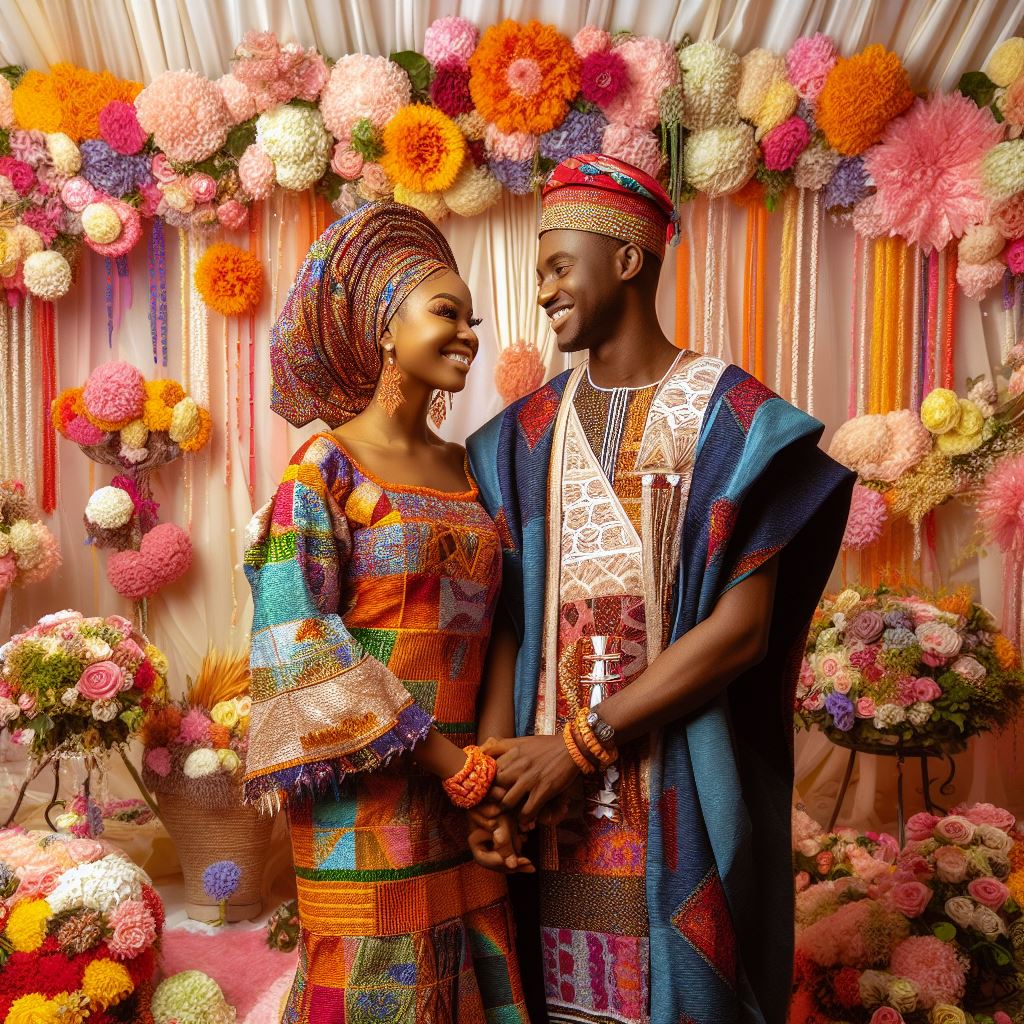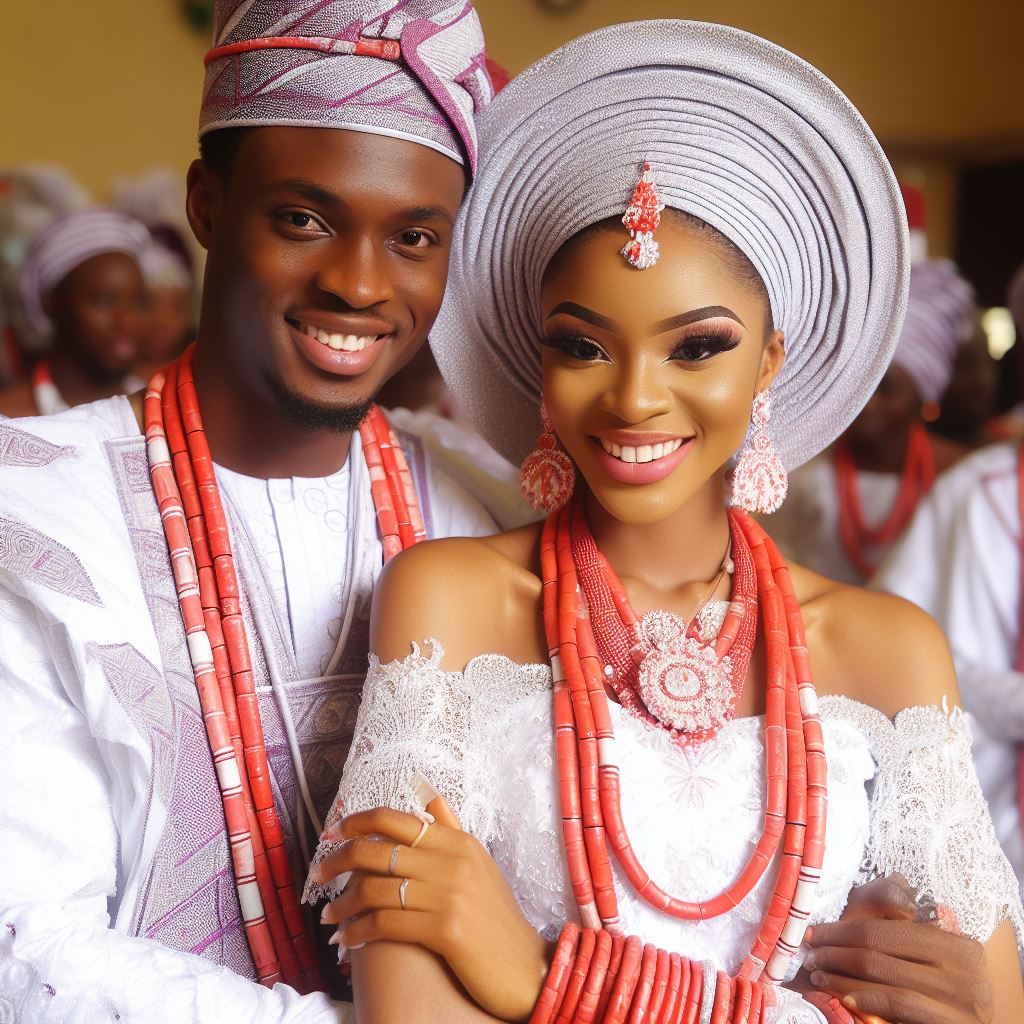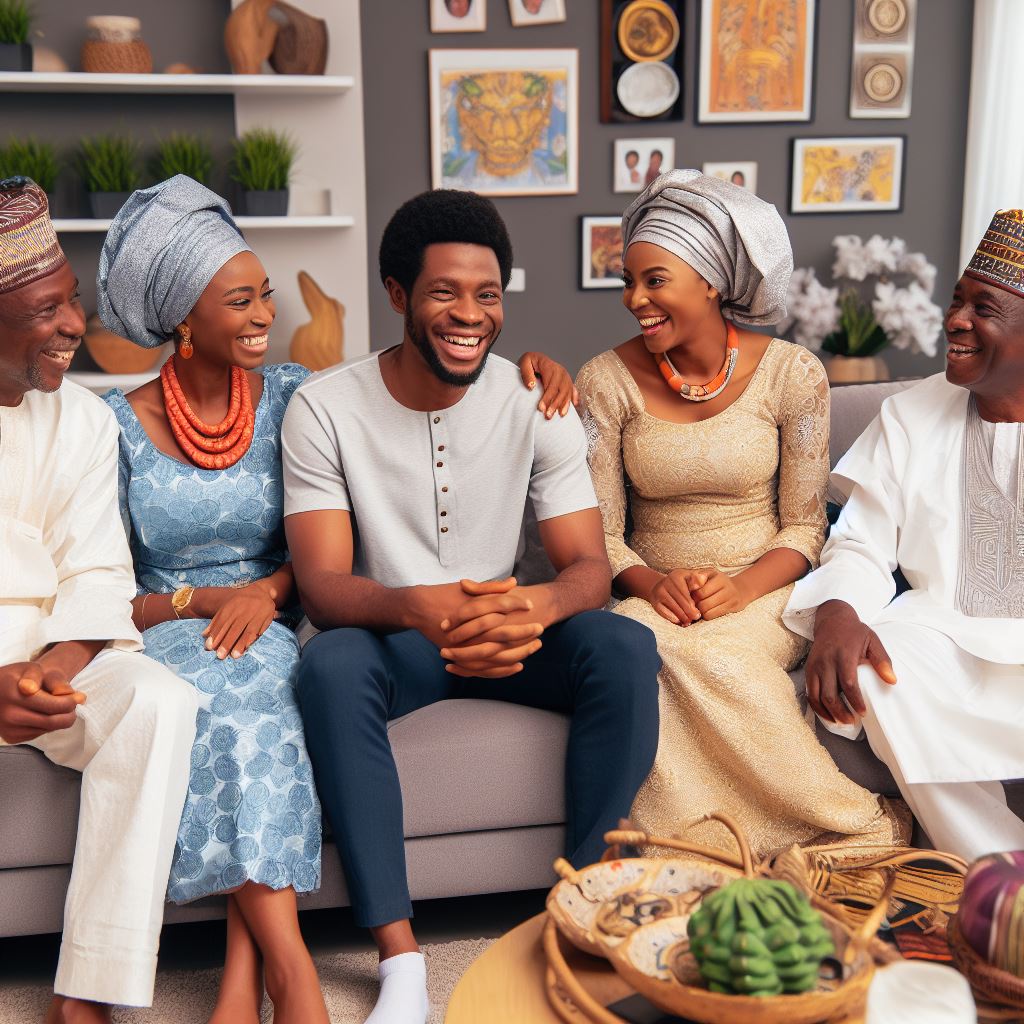Introduction
Topic of financial aspects and the cost of acquiring a marriage form in Nigeria
In Nigeria, one of the financial aspects of getting married is the cost of acquiring a marriage form. This form, required by the government, comes with a price.
Briefly Introduce the Topic of Financial Aspects and the Cost of Acquiring a Marriage Form in Nigeria:
Marriage is a significant milestone in life, but often overlooked are the financial aspects. In Nigeria, obtaining a marriage form comes with associated costs. Here’s a breakdown:
- Marriage Registration: In Nigeria, it is a legal requirement to register your marriage. This involves acquiring a marriage form.
- Marriage Form Cost: The cost of a marriage form varies depending on your location. In some states, it’s as low as ₦500, while in others, it can be significantly higher.
- Legal Processing: Beyond the form cost, there are legal processing fees, which can add to the financial burden. These fees are essential for the validation of your marriage.
- Additional Requirements: There might be additional requirements, such as documentation fees, medical check-ups, and fees for marriage counseling.
- Cultural and Religious Expenses: In addition to the legal costs, there are cultural and religious expenses associated with weddings in Nigeria. These can vary greatly depending on traditions and beliefs.
- Budgeting and Planning: To manage the financial aspects of acquiring a marriage form effectively, it’s crucial to create a budget and plan for these expenses in advance.
- Legal Benefits: Registering your marriage provides legal protection, inheritance rights, and other benefits, making the cost worthwhile.
Understanding the financial aspects of acquiring a marriage form in Nigeria is essential for couples planning to tie the knot.
Proper planning and budgeting can help navigate these costs while ensuring your marriage is legally recognized and protected.
Background of Marriage Forms in Nigeria
Purpose and significance of marriage forms
- Marriage forms in Nigeria serve as official documentation of a legally recognized union between couples.
- These forms are significant as they provide proof of marriage and are required for various legal and financial purposes.
- They also serve as a means to gather demographic data and assist in the documentation of population statistics.
- Marriage forms are essential in establishing legal rights, inheritance, and access to government benefits.
Legal requirements for obtaining a marriage form in Nigeria
To obtain a marriage form in Nigeria, couples must meet certain legal requirements.
- Firstly, both parties must be at least 18 years old and mentally capable of understanding the responsibilities of marriage.
- Consent from both the bride and groom is necessary, and any previous marriages must be dissolved through divorce or death.
- Additionally, the couple must provide valid identification documents such as birth certificates, passports, or national ID cards.
- Proof of address and two passport-sized photographs are also required.
- Furthermore, couples must fulfill the legal requirements specific to their chosen form of marriage.
- In Nigeria, there are three recognized forms of marriage: statutory marriage, customary marriage, and Islamic marriage.
- Statutory marriages require the couple to provide a notice of marriage, obtain a marriage license, and have two witnesses present during the ceremony.
- Customary marriages follow the traditions and customs of particular ethnic or tribal groups, with the consent of family members being essential.
- Islamic marriages adhere to Islamic laws and customs, and the couple needs to obtain a marriage certificate from a recognized mosque.
Additional points
- It is crucial to note that obtaining a marriage form involves certain costs. The fees for marriage forms vary depending on the type of marriage and the state or location where the marriage will take place.
- Couples should be prepared to cover expenses such as fees for marriage licenses, notices, certificates, and administrative charges.
- These costs can range from a few thousand naira to several hundred thousand naira, depending on the complexity and location of the marriage.
Overall, marriage forms in Nigeria have significant purpose and legal requirements. These forms provide proof of marriage, establish legal rights, and contribute to demographic data.
Couples seeking marriage forms must meet specific legal requirements based on their chosen type of marriage.
Additionally, they should be aware of the associated costs involved in acquiring a marriage form in Nigeria.
Read: Overcoming Financial Struggles in Nigerian Marriages
Types of Marriage Forms in Nigeria
Different Types of Marriage Forms
- Court Marriage Form
- Traditional Marriage Form
- Islamic Marriage Form
Marriage forms in Nigeria can be categorized into three main types: court marriage, traditional marriage, and Islamic marriage forms. Each type has its own set of requirements and processes.
Requirements and Process for Acquiring Each Marriage Form
Court Marriage Form
To acquire a court marriage form, the following requirements must be met:
- Both parties must be at least 21 years old.
- Both parties must be unmarried or previously divorced.
- Affidavit of marital status, birth certificate, and passport-sized photographs are required.
- Four witnesses must be present during the court proceedings.
After fulfilling the requirements, the couple needs to:
- Obtain a marriage license from the court registry.
- Pay the required fees.
- Proceed with the court marriage ceremony.
Traditional Marriage Form
To acquire a traditional marriage form, the process varies depending on the cultural customs of the ethnic group involved. However, some common requirements include:
- Payment of bride price or dowry.
- Consent and blessings from both families.
- Traditional marriage ceremonies and rituals must be conducted.
After fulfilling the requirements, the couple will:
- Register the marriage with the appropriate local government authority.
- Possibly incur additional costs for documentation and registration.
Islamic Marriage Form
To acquire an Islamic marriage form, the following requirements must be met:
- The consent of both the bride and groom is required.
- Two witnesses must be present during the ceremony.
- A wali (guardian) should be appointed for the bride.
- A mahr (dowry) must be agreed upon by the groom and bride.
After fulfilling the requirements, the couple will:
- Register the marriage with the appropriate Islamic religious authority.
- Pay the required fees for the marriage certificate.
Differences in Cost Among the Types of Marriage Forms
The cost of acquiring a marriage form varies depending on the type chosen:
- Court Marriage Form: The cost usually includes fees for the marriage license and court proceedings.
- Traditional Marriage Form: The cost involves the payment of bride price or dowry, along with possible additional costs for documentation and registration.
- Islamic Marriage Form: The cost typically includes fees for the marriage certificate and any additional services provided by the Islamic authority.
It is important for couples to consider the financial aspects when choosing the type of marriage form in Nigeria.
Read: Comparing Marriage Form Procedures: Nigeria vs. Other Countries
Factors Affecting the Cost of Marriage Forms in Nigeria
Influence of location on the cost of marriage forms
- Location plays a significant role in determining the cost of acquiring a marriage form in Nigeria.
- In urban areas, where the cost of living is higher, marriage forms are generally more expensive. The increased demand for these forms in cities drives up their price.
- Additionally, the cost of obtaining a marriage form can vary depending on the state or local government where the marriage is being registered.
- Some states may have higher administrative fees or additional requirements, which can increase the overall cost.
Impact of urban and rural areas on the cost
- The cost of marriage forms in Nigeria is also influenced by whether the marriage takes place in an urban or rural area.
- In general, marriage forms in rural areas tend to be cheaper compared to their urban counterparts. This is primarily due to the lower cost of living and administrative fees in rural communities.
- Furthermore, the availability of marriage registration centers and government offices also differs between urban and rural areas.
- Urban regions often have more convenient and easily accessible centers, which can contribute to the higher cost of marriage forms.
Role of religion and traditional customs on the cost
- Religion and traditional customs significantly impact the cost of acquiring a marriage form in Nigeria.
- Different religions and tribes have their own customs and requirements for marriage registration, which may affect the overall cost.
- In some cases, couples may need to fulfill certain religious obligations or engage in customary practices to obtain a marriage form.
- These additional requirements can incur added expenses, such as fees for traditional ceremonies or religious documents.
- Moreover, certain religious institutions or traditional authorities may charge their own fees for officiating marriages or providing certification.
- This further contributes to the overall cost of acquiring a marriage form in Nigeria.
Basically, the cost of acquiring a marriage form in Nigeria is influenced by various factors.
The location of the marriage registration, whether in an urban or rural area, affects the cost, with urban areas generally being more expensive.
Additionally, religion and traditional customs play a significant role, as couples may need to fulfill specific requirements or pay extra fees for religious or customary practices.
Read: FAQs: Addressing Common Queries on Nigerian Marriage Registry

Cost Breakdown of Marriage Forms in Nigeria
Acquiring a marriage form in Nigeria involves several expenses that couples need to consider. This breakdown provides a detailed overview of the various costs and fees associated with obtaining a marriage form.
Detailed Breakdown of Expenses
- Marriage form acquisition fee: Couples are required to pay a specific amount to obtain the marriage form from the government. This fee covers the initial paperwork and processing.
- Application processing fee: Once the marriage form is acquired, couples need to submit their application to the appropriate government office. This incurs an additional processing fee.
- Administrative fee for document verification: The government verifies the authenticity of the documents submitted by the couple, and a small administrative fee may be charged for this verification process.
- Legal consultation fee: Many couples seek legal advice before acquiring a marriage form to ensure they meet all the legal requirements. This consultation fee is separate from the other expenses.
Costs Included
- The costs involved in acquiring a marriage form in Nigeria include administrative fees, processing fees, and legal fees.
- Administrative fees cover the various administrative tasks associated with the process, such as document handling and record keeping.
- Processing fees are charged to cover the expenses incurred by the government in reviewing and processing the marriage form application.
- Legal fees are incurred when couples seek legal assistance or consultation during the process of acquiring the marriage form.
Additional Fees and Charges
In addition to the basic expenses, there are some additional fees and charges that couples may need to pay:
- Photocopying and certification fees: Couples may need to make certified copies of various documents, such as birth certificates or identification cards, which incurs additional fees.
- Stamp duty charges: Some government offices may require payment of stamp duty charges as part of the marriage form acquisition process.
- Transportation expenses for visiting government offices: Couples may need to travel to different government offices to fulfill certain requirements, which incurs transportation costs.
- Special license fee for non-Nigerian citizens: Non-Nigerian citizens are required to pay a special license fee in addition to the regular expenses.
It is important for couples to be aware of these costs and plan their budget accordingly when going through the process of acquiring a marriage form in Nigeria.
Read: Tales from the Registry: Real-Life Nigerian Wedding Stories
Discover More: A Deep Dive into Nigeria’s Rich Wedding Traditions
Comparison of Marriage Form Costs Across Nigerian States
Cost variations in different states of Nigeria
- Lagos State: The cost of acquiring a marriage form in Lagos is N31,000.
- Abuja: In the Federal Capital Territory, the cost of a marriage form is N20,000.
- Kano State: The marriage form in Kano costs N5,000, the lowest among all states.
- Rivers State: Acquiring a marriage form in Rivers cost N25,000.
- Enugu State: The cost of the marriage form in Enugu is N15,000.
From the above comparison, it is evident that the cost of acquiring a marriage form in different Nigerian states varies significantly.
Possible reasons for the discrepancies in costs
The disparities in the costs of marriage forms across Nigerian states can be attributed to several factors:
- Economic Disparities: States with higher costs of living tend to have higher marriage form fees.
- Administrative Differences: Each state government has the authority to set its own fees for marriage forms.
- Infrastructure Development: States that invest more in infrastructure may raise marriage form costs to generate revenue.
- Population Density: States with larger populations may charge higher fees to meet the demand for marriage registration.
- Revenue Generation: Some states use marriage form fees as a means to generate revenue for development projects.
Therefore, it is important to consider these factors when comparing the cost variations in different states of Nigeria.
Explore Further: Scriptural Guidance for Handling Marital Challenges
Challenges Faced by Couples in Acquiring Marriage Forms
Achieving a legal marriage in Nigeria involves navigating through various challenges and obstacles.
Couples often encounter difficulties, bureaucratic challenges, and legal or administrative issues while trying to obtain marriage forms. In this section, we will explore these challenges in detail.
Common Difficulties Encountered While Obtaining Marriage Forms
- Inadequate Documentation: Many couples face difficulties due to incomplete or incorrect documentation while applying for marriage forms.
- Lack of Awareness: Some couples lack information about the necessary procedures and requirements for obtaining marriage forms, leading to delays and frustrations.
- Language Barrier: Language can sometimes be a barrier, especially for couples who do not speak English fluently, making it challenging to understand the application process.
- Financial Constraints: The cost of acquiring marriage forms can be a significant challenge for couples, particularly those from low-income backgrounds.
- Cultural Practices: Certain cultural practices and traditional beliefs may complicate the process of obtaining marriage forms, causing delays and bureaucratic hurdles.
Bureaucratic Challenges and Delays Faced by Couples
- Lengthy Processing Time: The bureaucratic system in Nigeria often leads to delays in the processing of marriage forms, causing frustration for couples.
- Multiple Government Agencies Involved: Obtaining marriage forms may involve interacting with various government agencies, which can lead to delays and bureaucracy.
- Lack of Coordination: Poor coordination among government agencies responsible for issuing marriage forms can result in inefficiencies and further delays.
- Corruption and Bribery: Couples may face challenges due to corrupt practices, with officials demanding bribes or engaging in unethical behavior to expedite the process.
- Inefficient Application System: Outdated or inefficient application systems can lead to delays and complicate the process of obtaining marriage forms.
Legal or Administrative Issues Related to Marriage Form Acquisition
- Inconsistent Laws: Different states in Nigeria have varying marriage laws and requirements, leading to confusion and challenges for couples moving or getting married across state lines.
- Complex Registration Procedures: Complicated administrative procedures for marriage form registration can cause confusion and delays for couples.
- Lack of Transparency: Some couples face challenges due to a lack of transparency in the process, making it difficult to understand the reasons behind delays or rejections of their application.
- Discrimination and Legal Barriers: Couples belonging to certain religious or ethnic groups may face discrimination or encounter legal barriers when trying to obtain marriage forms.
- Poor Availability of Services: Limited accessibility to government offices providing marriage forms and related services can hinder couples’ ability to obtain the necessary documentation.
Generally, couples in Nigeria face various challenges in acquiring marriage forms.
These difficulties include inadequate documentation, lack of awareness, financial constraints, bureaucratic hurdles, lengthy processing times, corruption, and legal or administrative issues.
By addressing these challenges and implementing reforms, the Nigerian government can simplify the process and ensure a smoother experience for couples seeking to obtain marriage forms.
Conclusion
Summary of the key points discussed in the blog post
In the end, we have discussed the key points regarding the cost of acquiring a marriage form in Nigeria.
Emphasis on the importance of understanding the financial aspects of acquiring a marriage form in Nigeria
It is important to understand the financial aspects of acquiring a marriage form in Nigeria as it can have significant implications on individuals and couples planning to get married.




